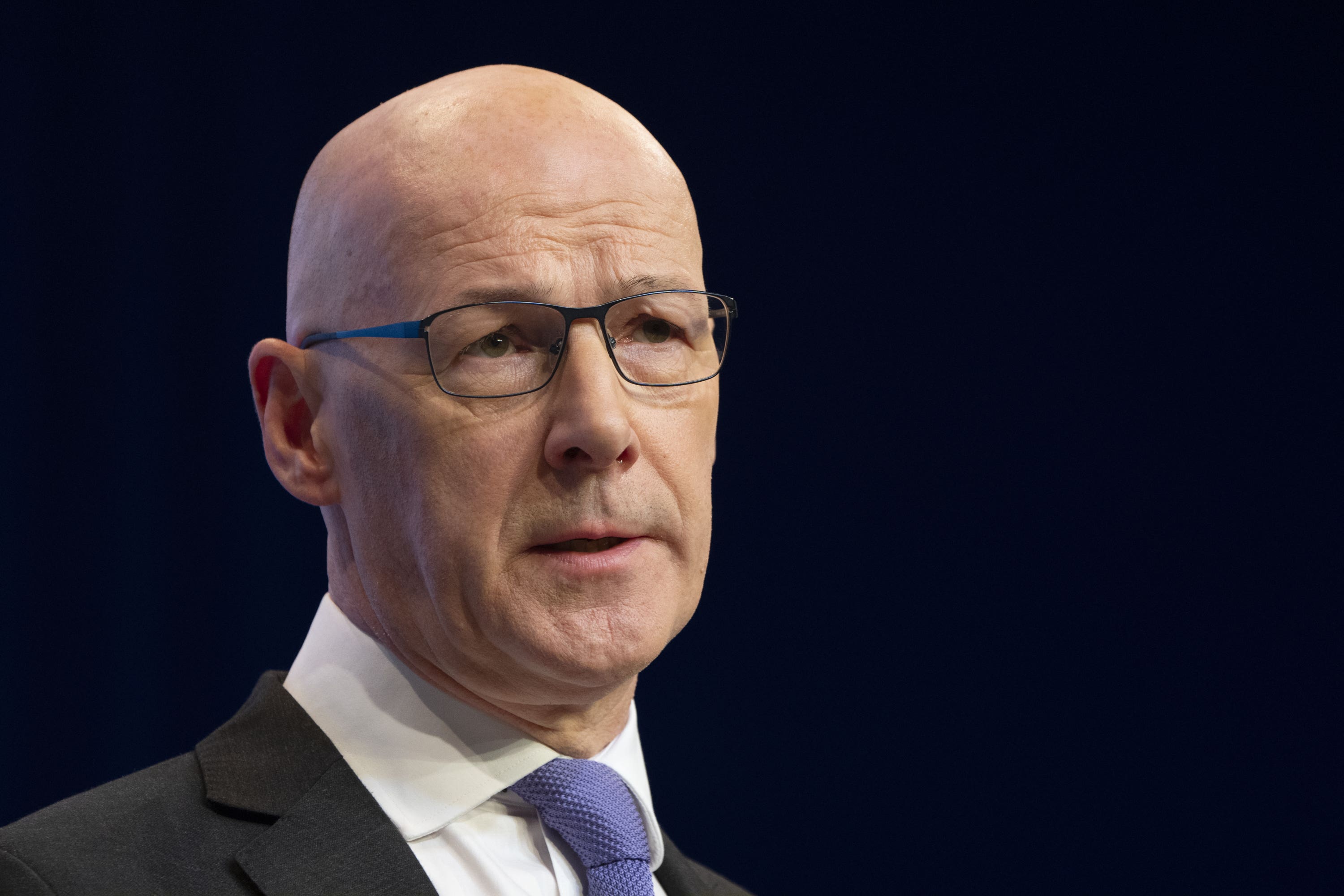Swinney refuses to rule out freeze on tax thresholds in Scottish budget
The First Minister said he would not comment on what would be in the upcoming budget but added that investment in public services was vital.

Your support helps us to tell the story
From reproductive rights to climate change to Big Tech, The Independent is on the ground when the story is developing. Whether it's investigating the financials of Elon Musk's pro-Trump PAC or producing our latest documentary, 'The A Word', which shines a light on the American women fighting for reproductive rights, we know how important it is to parse out the facts from the messaging.
At such a critical moment in US history, we need reporters on the ground. Your donation allows us to keep sending journalists to speak to both sides of the story.
The Independent is trusted by Americans across the entire political spectrum. And unlike many other quality news outlets, we choose not to lock Americans out of our reporting and analysis with paywalls. We believe quality journalism should be available to everyone, paid for by those who can afford it.
Your support makes all the difference.John Swinney has refused to rule out freezing the tax thresholds as a measure of increasing the Holyrood Government’s revenue in the upcoming Scottish budget.
The First Minister said he would not comment on what would be in the Scottish budget ahead of time.
He said measures taken by the UK Chancellor at the end of the month would have a big impact on what the Scottish Government could announce in December.
Speaking at an event at the Edinburgh Futures Institute, Mr Swinney urged Rachel Reeves to change her fiscal rules to allow for more borrowing to fund public services.
He urged the Chancellor to raise the 3% cap on public sector borrowing while warning that an austerity approach would be “disastrous”.
Shona Robison, the Finance Secretary, announced up to £500 million worth of cuts in the summer to plug a financial black hole in Scotland’s finances.
Meanwhile, Ms Reeves has said she faces a £22 billion budget black hole left over by the previous government.
Speaking to journalists after his speech in Edinburgh on Monday, the First Minister was asked if he could rule out freezing tax thresholds in Scotland.
“I’m not going to rule anything in or out about the budget,” he said. “We’ve obviously got a process to go through which is hugely influenced by the outcome of the UK Budget process.
“What I will say is that there is a clear interaction between where the UK Government is, what choices it faces, and the issues that we are wrestling with.
“And obviously we’ll consider all these issues in the period up until December 4 when we set our Budget.”
In last year’s Scottish budget, the threshold at which people start to pay the lower bands of income tax rose in line with inflation but the threshold for the higher rate and the top rate was maintained at current levels, of £43,662 and £125,140.
That was the fourth budget in a row that the higher rate was frozen.
It means more Scots became eligible for these higher payments as wages rose.
Asked if he accepted whether freezing thresholds would in effect be raising taxes on workers, Swinney replied: “Obviously there will be some people that are impacted as a consequence of that, yes”.
Rachel Reeves is looking to raise up to £40 billion through tax hikes and spending in her 2024 autumn Budget at the end of the month.
But she has faced backlash from within her own party with some ministers unhappy at being asked to reduce spending by as much as 20%.
The Chancellor is reportedly considering increasing national insurance contributions for employers.
The Labour manifesto had ruled out raising national insurance, income tax or VAT – but it stressed that it did not want to raise taxes on “workers”.
Mr Swinney warned against an increase in employers’ national insurance without compensation for public bodies.
He said any increase would mean public bodies – such as the NHS or councils – paying a higher tax bill.
He said: “I can see where the UK Government is going, but I am simply making the point that if they are going to go there, they’ve got to be open with people that they’re either increasing public expenditure to take account of that or they’re essentially undermining public expenditure by the back door.
“Because if employers’ national insurance contributions go up in the United Kingdom then that will have to be paid for by public sector bodies.
“And unless public expenditure goes up to an extent to compensate for that and more we’re actually no better off as a consequence.”
A UK Government spokesperson said: “The Chancellor has vowed to lead the most pro-growth Treasury in history and has been clear that it is important that we count the benefits of public investment and not just the cost of it.
“We have already taken action to deliver more investment in the UK economy by fixing the broken planning system and setting up a new National Wealth Fund, and the International Investment Summit secured a record-breaking £63 billion in investment commitments.”